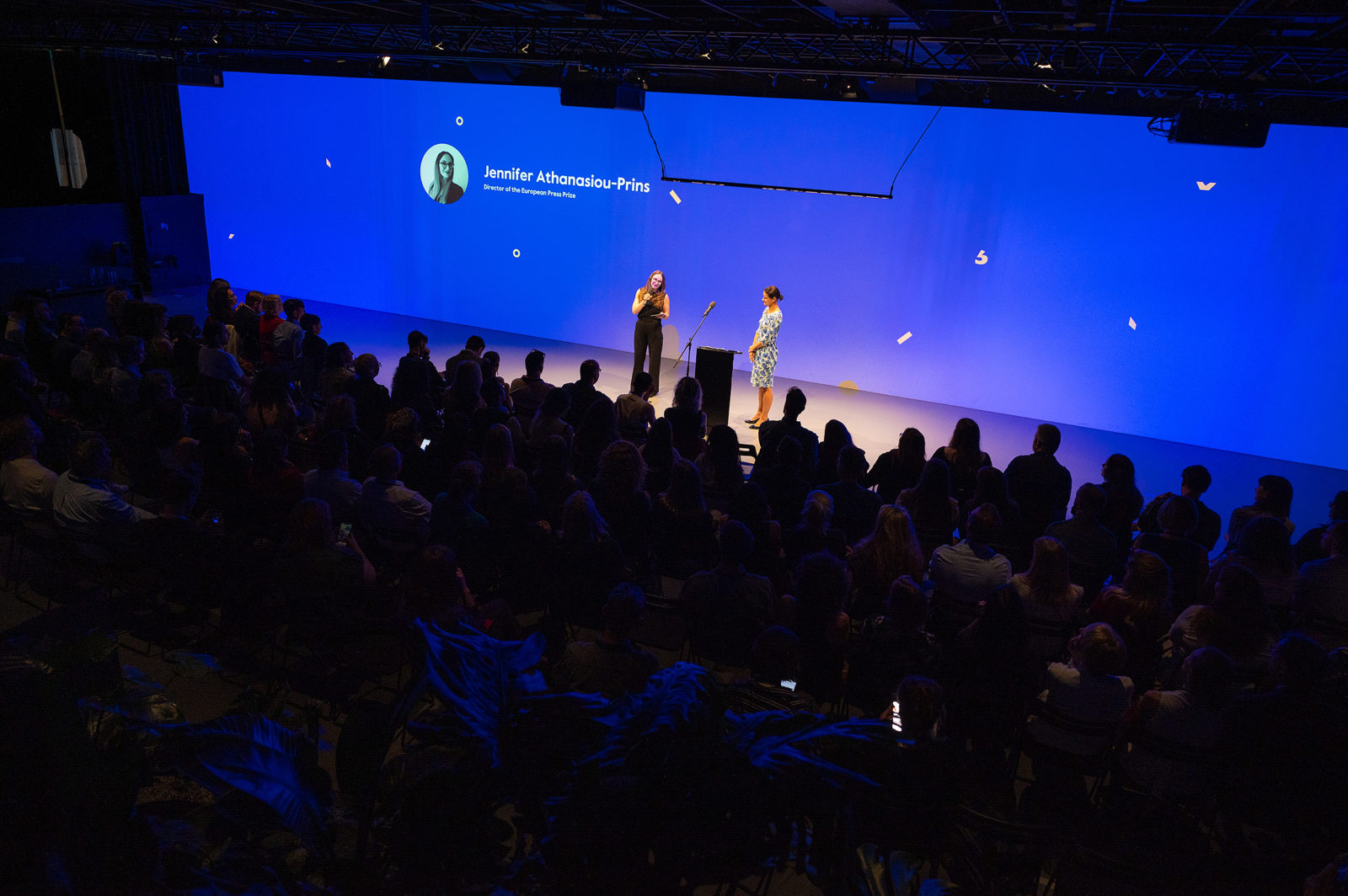The after-movie of the European Press Prize Award Ceremony 2024
On June 6, 2024, we celebrated the best of European journalism at our annual Award Ceremony, in Prague, at CAMP – Center for Architecture and Metropolitan Planning.
It was a wonderful and emotional evening, that we organised with the precious help of our local Partner, MDIF – Media Development Investment Fund. We also want to thank our Preparatory Committee and Panel of Judges for their precious work, and all the other professionals who contributed to making this evening so special.
As a summary of the Ceremony, we prepared an after-movie that you can watch below. And don’t forget to read the articles of our Nominees, the true protagonists of the evening and of the European Press Prize 2024.
From Publico.es: European Press Prize, the European journalism that brings hope
In 2012, before the rise of disinformation, a group of journalists decided to create an independent European award to celebrate journalistic excellence. What started 13 years ago as an informal party celebrating the best journalistic content in Europe has now become the ‘grand prize’ of European journalism.
This piece by our Preparatory Committee member Lucila Rodríguez-Alarcón appeared on Publico.es. Click here to read the original article.

The European Press Prize Award Ceremony 2024, at CAMP, in Prague
Last week, the 2024 European Press Prize was awarded, with a ceremony that takes place in a different city each year. The celebration is made up of various activities, most of them dedicated to creating spaces for meeting and exchange, involving all the journalists whose work has reached the final stage – five per category for six categories. All members of the prize are also invited — the Board, the Preparatory Committee, (Funding) Partners, and the Panel of Judges.
For two days, the Award allows for hugs, care, recognition, sweetness and complicity between a group of professionals who often arrive exhausted at the event.
Because practising quality independent journalism these days is exhausting, to say the least. Most of the work selected this year was signed by freelancers and small media, sometimes competing alone, but in many cases coming together in unlikely consortiums covering several European countries.
In a hostile environment, the bravest and most precarious part of the profession sharpens its wits and, far from giving up, joins forces to keep fighting to bring to light information that should open up major media outlets, or close them down.
Each year, prizes are awarded for the best Investigative Reporting, the most Distinguished Reporting, Innovation in journalistic products and the the best Public Discourse work. There is also a Special Award, and for the last two years, there has been a category dedicated to the best migration story, the Migration Journalism Award.
This year, the five finalist stories of the Migration Journalism category were great. The 2024 winner tackles the externalisation of European borders in Senegal. It is a long and comprehensive story published last year by Dakar-based Romanian journalist Andrei Popoviciu. Andrei was part of the team that recently brought out the Lighthouse Reports’ investigation into the abandonment of migrants in the desert. But Popoviciu was on his own, drawing on his own resources to produce this report. This award not only recognises the excellence of his work, but also allows him, thanks to the prize money, to continue working and researching in the region.
“Stories that remind me that there are more things that unite us than separate us.”
Among the other four works, all of which are must-reads, I am fascinated by the one by Ioana Călinescu and Petruț Călinescu, entitled “Pride and Concrete”.
This beautifully crafted reportage tells a decades-long story about the hopes, ambitions and sufferings of a whole community of Romanian migrants who use their hard-earned money in Western Europe to build luxury houses in their home villages. With these houses, which they may never get to finish or use, these people aim to recreate the ‘European dream’, which is not as much talked about as the American dream, but that in countries like Romania is very present among migrant communities.
This year’s Special Award has a powerful story as well. It is an investigation dedicated to identifying mass graves and unmarked graves of migrants who died trying to reach Europe. It is a wake-up call about the crisis of mass graves proliferating on Europe’s borders, outside of war, on an unprecedented scale. The Border Graves Investigation team consists of eight freelance journalists working on Europe’s southern and eastern borders. “The Border Graves Investigation”, as it is called, was published in more than 40 articles in 22 media outlets in 9 countries and 8 languages.
The Preparatory Committee is composed of twenty-one professional journalists. Each of us read about a hundred articles this year, and I read more than 200.
After several months of reading and choosing, we agreed on these five articles per category, from which the Panel of Judges selected Winners and Runners-up. It is a huge job that we do pro bono because we believe that journalism is an indispensable tool to ensure the democratic well-being of our societies.
And I greatly enjoy going through stories that remind me that there are more things that unite us than separate us, for better or for worse.
A day after the European elections, I can’t help but think that the far-right may be seemingly making inroads in the EU, but alongside it, there is unique and courageous journalism emerging with incredible strength, ready to tell the stories that need to be heard.
This is what I stand by. It can. It must be done. We will get there.

